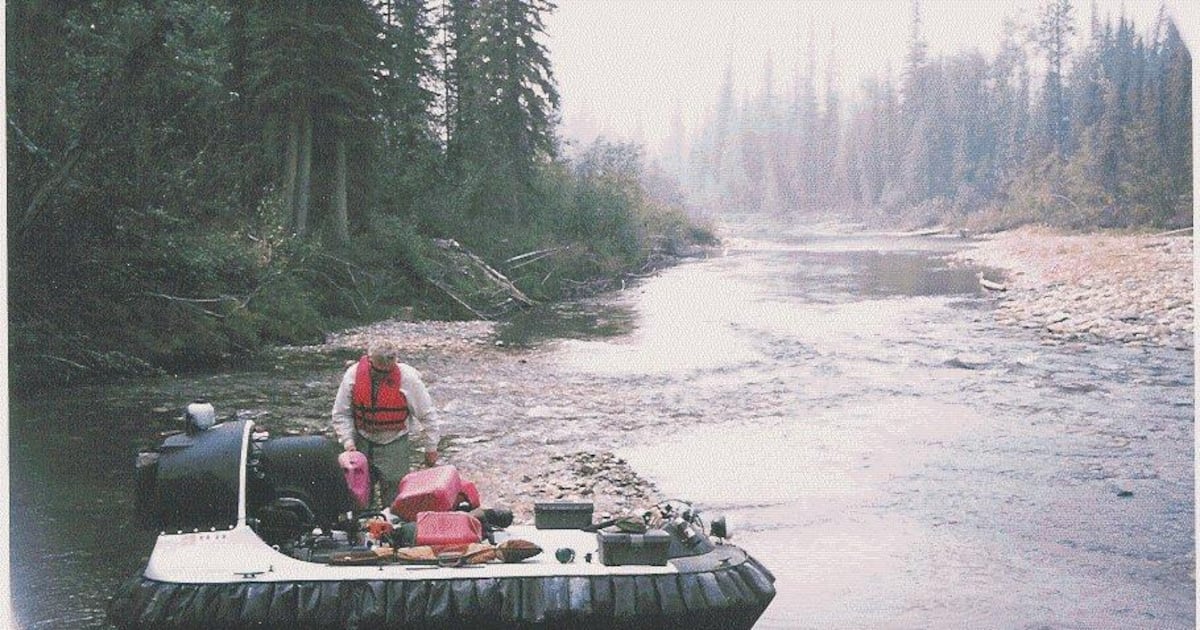
Hunting in Alaska is not just a pastime. It is a vital part of our heritage and central to our identity as Alaskans, from rural communities to the largest cities. For those of us who live that heritage, the goal is to pass it on to our children and grandchildren. But over the years, that way of life has become harder to sustain. Federal interference has chipped away at Alaska’s ability to manage its own fish and wildlife and, more specifically, our rightful ownership of navigable waters.
When Alaska became a state in 1959, the promise was clear. Like every other state, we were supposed to receive title to our navigable waters. More than 60 years later, we have received only about 6%of what we were promised.
This isn’t just a legal dispute; it affects the daily lives of Alaskans. When the federal government treats our waters as its own, it blocks access to hunting grounds, trapping lines and traditional travel routes. It makes life harder for guides and outfitters who keep small businesses running in local communities. And it prevents landowners, including Alaska Native corporations, from fully exercising their rights to use and access their lands. The continuation of the opportunity for subsistence uses by rural residents of Alaska, including both Alaska Natives and non-Natives, on public lands and by Alaska Native people on Native-owned lands is essential and depends on access to rivers and streams for subsistence hunting and fishing. These traditions are not just about food but about culture, family and survival. Federal overreach has too often made it harder for all rural residents, both Native and non-Native, to exercise these rights, despite the promises made in ANCSA and ANILCA. Recognizing Alaska’s ownership of its navigable waters will help ensure these traditions continue for generations.
I know this fight well. I took it all the way to the U.S. Supreme Court, twice, in the Sturgeon v. Frost cases. In both rulings, the court unanimously agreed that federal land management regulations do not apply to Alaska’s navigable waters. Those victories were important, but they were only the beginning. The real work is making sure those decisions are acted upon.
The good news is that the timing has never been better. We now have local leadership at agencies like the Bureau of Land Management and the U.S. Department of the Interior. I am optimistic that by working together — federal agencies, the State of Alaska, Safari Club International Alaska, ANCSA corporations, other private landowners and regular Alaskans — we can finally make progress. For the first time in decades, the chance to fix this broken system is upon us.
That is why SCI Alaska is advocating for federal legislation to speed up the process of confirming Alaska’s ownership of navigable waters and submerged lands. The legislation will also require federal agencies to follow established legal standards and act within firm deadlines. Just as important, it will respect the rights of private landowners, including Alaska Native corporations, ensuring that this effort strengthens their ability to access and fully utilize their lands.
This fight is about fairness and about keeping the promise made at statehood. Reliable access to our rivers and streams means hunters, both rural and urban, can reach the places that feed their families and sustain our outdoor traditions. It means businesses built on Alaska’s wild resources can grow and succeed. And it means future generations will inherit the same opportunities that we have fought so hard to defend.
Now is the time to act. With strong leadership in Alaska and a receptive federal landscape, now is the time to finally secure what was guaranteed to us at statehood.
I invite you to learn more and join us in this effort. Visit www.aksafariclub.org to stay informed, share your experiences and support our work.
Together, we can restore Alaska’s ownership of its waters and protect access for all Alaskans, current and future.
John Sturgeon heads the Alaska chapter of Safari Club International. In 2017 he was named the recipient of the Governor’s Conservationist of Year honor for his efforts to preserve access to Alaska’s waterways, which resulted from two cases going before the U.S. Supreme Court. Both ruled 8-0 in Sturgeon’s favor.